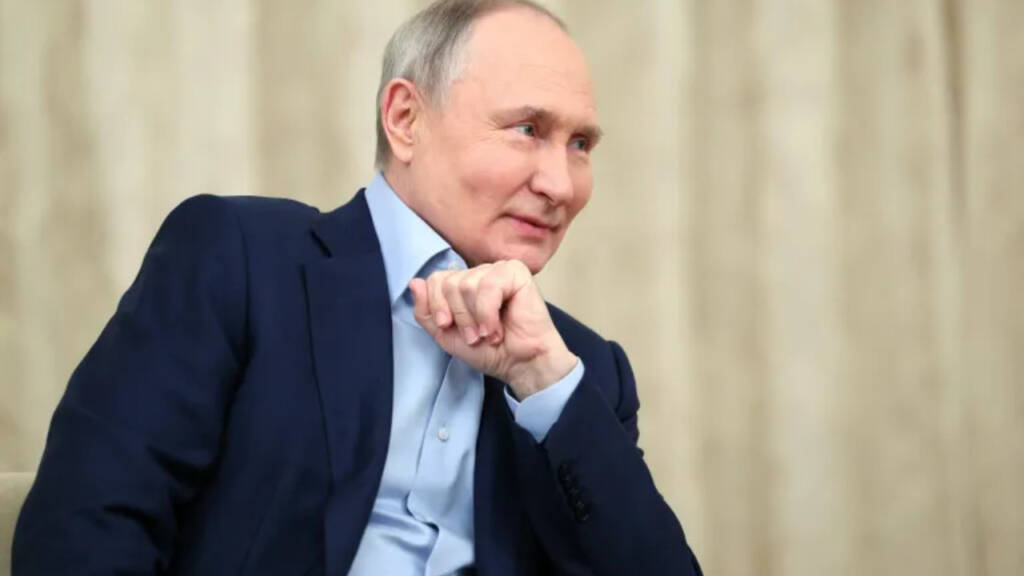As 2024 commences, Vladimir Putin stands with a sense of strength, evident in his recent announcement to seek re-election during a ceremony honoring Russian veterans of the Ukraine conflict. The war in Ukraine features prominently in his campaign, reflecting confidence in a favorable outcome.
Putin perceives the Western military machine as a formidable adversary, with Ukraine unwittingly becoming a battlefield. The Kremlin frames this struggle as an epic battle against the entire Western apparatus. This narrative resonates within Russia, where it is successfully embraced.
The Western military machine is more of a paper tiger, considering the confidence Putin exudes in facing this so-called formidable adversary.
The unfolding narrative underscores Russia’s conviction in the face of perceived Western pressure, shaping Putin’s political landscape as he embarks on another term.
Join us on Telegram: https://t.me/tfiglobal
The U.S. and Western countries aimed to tarnish Putin’s image and cripple Russia’s economy through sanctions, but their efforts fell short. Despite the imposed restrictions, the Russian economy remains robust, defying expectations. The West anticipated a decline in Putin’s popularity and economic instability, but the desired outcomes failed to materialize.
The Russian economy has not collapsed, contrary to hopes for Putin’s regime’s downfall. Military spending has propelled the economy into overdrive, with the national GDP outpacing the global average. Wages are surging at a record pace, and poverty rates have dropped to pre-USSR collapse levels.
Read More: The Country that Saved Russia Post American Sanctions
The political regime in Russia is currently at its most stable point, strengthened by the war that enabled Putin to eliminate opposition.
The Wagner Group’s armed rebellion, initially creating buzz in Western hawkish circles, proved inconsequential shortly after its occurrence. Contrary to Western expectations, the ongoing war has not weakened Putin; in fact, it seems unlikely to do so in the foreseeable future. This notion is challenging for Western political elites to accept.
Why do you think Western political elites find it challenging to accept the idea that the ongoing war has not weakened Putin and may not do so in the foreseeable future?
Despite the lack of evidence supporting a weakened Putin, advocates for military intervention persist, stoking concerns about the conflict’s potential escalation. The political landscape in Russia remains firmly under Putin’s control, with the war serving as a consolidating force rather than a destabilizing factor.
Approaching the second year since the invasion, the United States and the European Union are having trouble gathering money for Ukraine’s war. Russia, taking advantage of financial problems, launched big missile and drone attacks to test Ukrainian air defense. By exploiting the money shortages, the aim is to use up costly missiles for anti-aircraft systems, setting the stage for breaking down Ukrainian military structures with bomber planes.
Read More: Ukraine War was NOT between Russia and Ukraine. It was between the US and Europe
The West’s difficulty in getting funds is like a humorous background, pointing out how financial issues are undermining their supposed support for Ukraine and unintentionally helping Russia’s plans. The global situation takes an unexpected turn, and the West is struggling to find answers.
Notably, Vladimir Putin emerges unscathed, debunking Western expectations. The situation echoes a return to Cold War dynamics, where power plays overshadow global well-being. The irony lies in the unintended reinforcement of Putin’s position, leaving the West grappling with the consequences of their miscalculations. The fallout is a bitter pill for those who underestimated Putin’s resilience, breaking the myth of Russia’s downfall.
Despite high expectations, the Ukrainian counteroffensive fell short of achieving significant strategic progress, a development met with satisfaction in the Kremlin. Putin’s perceived strength, rooted in these geopolitical dynamics, positions him as a leader navigating challenging circumstances with a resilient stance. The unfolding narrative underscores Russia’s conviction in the face of perceived Western pressure, shaping Putin’s political landscape as he embarks on another term.
Watch More:
